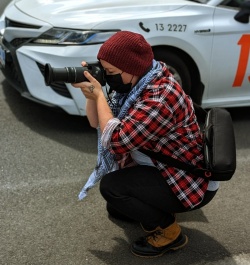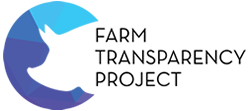News & Media > Editorials > Focus vs. Scope: deconstructing “animals only” ideology within the animal rights movement
Focus vs. Scope: deconstructing “animals only” ideology within the animal rights movement
There is a battle currently raging within the vegan and animal rights communities, a battle centred on justice and the interconnectedness of systems of oppression that affect both humans and non-human animals within society.
Many have chosen to align themselves with an “animals only” ideology, arguing that consideration for human rights within the animal rights space dilutes the message of animal liberation, causing non-human animals to become sidelined within their own movement. What these individuals fail to comprehend is the fundamental difference between focus and scope.
As an animal rights activist, the focus is the predetermined result towards which primary efforts are directed; that predetermined result being the liberation of non-human animals from human systems of exploitation. The focus provides the framework which informs actions, dialogues and the work undertaken.
However, the scope is the entirety of those actions, dialogues and work, as well as the outcomes and benefits created through that work. This encompasses the many ways in which activists engage with society, and the connections made with other individuals and spaces, as well as the improvements to society which can result from the realisation of that primary focus. For example, the actualisation of non-human animal liberation will primarily benefit non-human animals, whilst simultaneously resulting in safer living conditions for those communities forced to live in close proximity to intensive farming facilities or slaughterhouses. As animal agriculture is a significant contributor to the climate crisis, the actualisation of animal liberation would be of benefit to human health and survival. And as 3 out of 4 new or emerging zoonotic diseases have originated as a result of our dysfunctional relationship with non-human animals, their liberation could assist in potentially preventing future pandemics. The environmental, health, and social benefits of non-human animal liberation fall within the scope of the movement without detracting from the primary focus.

All too often animal rights activists rely on comparisons between systems of oppression as a tool without actively engaging with other social justice spaces, and without seeking to understand the myriad complexities and nuances, or even the lived experiences of those individuals and communities most affected by social injustice. According to Opotow (2018):
“...a critical understanding of social justice must be attentive to the nuances and complications along the exclusionary/inclusionary continuum where tension between justice and injustice can yield partial, transitory, illusory, or faux inclusion.”
When we view non-human animal rights through a social justice lens, whilst superficially we may aim to create a space that is inclusive of non-human animals, without an understanding of and a consideration for those communities we seek to operate within, we in fact can create a movement that is non-inclusive for many other human individuals, and often for non-human animals themselves.
But this is only applicable if an individual or group views the vegan or animal rights movements as belonging within the social justice sphere. Indeed, animal rights activists whose advocacy is informed by the principles of intersectionality are frequently maligned as “social justice warriors” by “animals only” activists and vegans, which certainly indicates a level of hostility towards the concept of social justice itself. However, if an individual or group do not view animal rights as a social justice movement, then by extension they are not advocating for non-human animals to have a place of moral consideration within society, an exclusionary ideology that simultaneously “others” non-human animals whilst undermining their autonomy; other animals are here for us to determine how they are treated (whether humanely or inhumanely), but are not to be included as members of “our” society itself.
To that end, those very non-human animals, who are conveniently denied their agency by those who claim to be advocating for their rights but label them “voiceless”, are effectively scapegoated to excuse white supremacism, transphobia, misogyny, ableism and classism within a movement supposedly dedicated to the pursuit of justice.
The inclusion of advocacy for human rights within the scope of the animal rights movement in no way detracts from the focus. Rather, by creating connections and understandings with other individuals and groups (who are striving against the same systems, states and social injustices as we are) we create a unified movement with a variety of focuses; combining abilities, resources, and the sheer force of numbers required to actualise justice for humans and non-human animals in a systemically unjust world.

References
Opotow, S. “Social Justice Theory and Practice: Fostering Inclusion in Exclusionary Contexts,” in The Oxford Book of Social Psychology and Social Justice (2018), Phillip L. Hammock (Ed.)
APM Body of Knowledge 6th Edition (2012)
www.who.int/bulletin/volumes/97/2/18-224295/en/
www.ehp.niehs.nih.gov/doi/full/10.1289/who.11034
www.climatenexus.org/climate-issues/food/animal-agricultures-impact-on-climate-change/
www.cdc.gov/one health/basics/zoonotic-diseases.html



